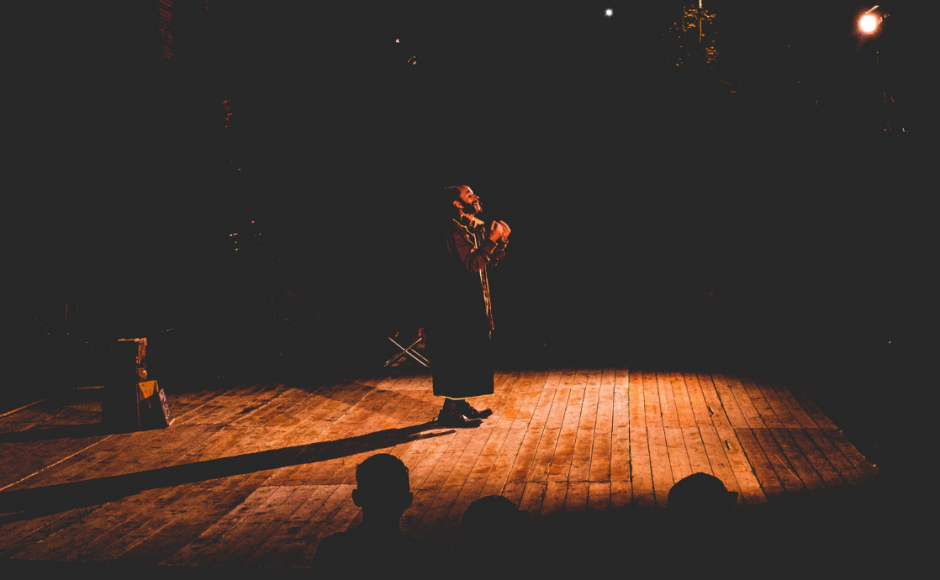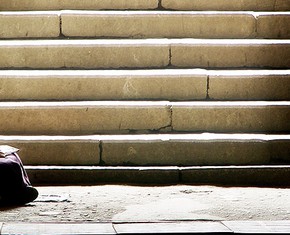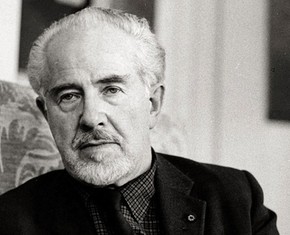The views expressed in our content reflect individual perspectives and do not represent the authoritative views of the Baha'i Faith.
One film or novel or play or public art exhibition can affect a person for the rest of their life, and perhaps set them on a new path they hadn’t previously considered. Art can open the mind and the heart.
The Baha’i poet Roger White explained: “Art conveys information about ourselves and our universe which can be found nowhere else. Our artists are our benefactors.”
Theater, one of the most powerful artistic forms, addresses issues and brings information to us. While watching, we can experience it as if it is actually taking place right in front of our eyes.
Abdu’l-Baha, the son and successor of Baha’u’llah, the prophet and founder of the Baha’i Faith, said: “The stage will be the pulpit of the future.” He further proclaimed: “The drama is of the utmost importance. It has been a great educational power in the past; it will be so again.”
RELATED: The Drama of the Soul: the Baha’i Faith on Stage and Screen

In the same vein, the playwright Edward Albee wrote:
I like the fact that the theater always exists in the present tense, and that at its best it is an argument against the status quo. A serious play always holds a mirror up to people and says, “Look, this is who you are. This is how you behave. If you don’t like it, why don’t you change?”
I’ve been deeply affected by two examples from popular culture: West Side Story and a Chicano play called Zoot Suit.
The musical West Side Story, a modern day take on Romeo and Juliet, depicts the anguish of two young people whose love is thwarted by their peers, members of rival gangs from different cultures, and the sacrifices they are willing to make to honor their love for each other. Whether watching the modern musical or the Shakespearean drama, the viewer takes away a realization of the ridiculousness and the dangers of tribalism, of prejudice against and distrust of “the other.”
Baha’is believe there is no legitimate basis for dividing ourselves against others. Abdu’l-Baha explained:
White doves and gray doves associate with each other in perfect friendship. Man draws imaginary lines on the planet and says, “This is a Frenchman, a Musselman, an Italian!” Upon these differences wars are waged. Men are fighting for the possession of the earth. They fight for that which becomes their graves, their cemeteries, their tombs.
In reality all are members of one human family – children of one Heavenly Father. Humanity may be likened unto the vari-colored flowers of one garden. There is unity in diversity. Each sets off and enhances the other’s beauty.
My Chicano History class from Santa Barbara City College took a field trip to Los Angeles in 1978 to attend a live performance of Zoot Suit. The summary of this play on enotes.com says:
The first Chicano play on Broadway, Zoot Suit incorporates bilingual dialogue and alienated Mexican Americans. The play grew out of California Chicano guerrilla theater. Luis Miguel Valdez questions newspaper accounts of the Los Angeles zoot-suit-Columbus Day riots and the related Sleepy Lagoon Murder Trial (1942). The drama uses song, dance, and a unifying narrative based on the traditions of the Mexican corrido (a ballad form that often reflects on social issues). Newspapers described zoot-suiters knifing and killing until stopped by the U.S. Navy and Marines and deservingly imprisoned (“Police Nab 300 in Roundup”); Valdez contrasts this yellow journalism with a very different reality: lively, harmless singing and dancing interrupted by police violence (“Marines and Sailors … stomping like Nazis on East L.A.”), mass arrests, and brutal police interrogations.
In the production I saw, the stage décor was equally as effective as the words spoken in the play itself. The use of stacks of newspapers for desks, chairs, etc. gave the audience a silent, visual awakening of the power of the press, which can be used for good or ill at the whim of the writers and editors.
Historical dramas also wield great power. Two one-act plays by Anne Boyles: To Walk in His Footsteps and When the Moment Comes were presented to the youth attending the Baha’i World Congress in New York City. Both fleshed out stories and statistics and transported the audience back in time – with a visceral impact. The former depicted three characters with typical human flaws whose lives were transformed through, respectively, learning of Baha’u’llah’s teachings, meeting Abdu’l-Baha, and correspondence with Shoghi Effendi. The latter took the youth inside the prison where a group of Baha’is, some very young, were incarcerated following the 1979 Islamic Revolution in Iran — their only crime being membership in the persecuted Baha’i Faith. The youth, most of whom (like many of their elders) had taken their freedoms for granted, gained a new appreciation for them and developed connections with their fellow Baha’is, who continue to the present day to suffer in the cradle of their Faith.
When we reprised these plays on the West coast, a journalist from Voice of America covered a production of When the Moment Comes at the Los Angeles Baha’i Center. As the cast gathered onstage following the performance for an interview, he kept stumbling on his words, unable to begin to ask his questions. Noticeably uncomfortable, he finally requested I cover my feet, which were made up to look like the wounds following a beating with the bastinado – basically the whipping of the soles of the feet. Intellectually, he knew what he saw wasn’t real, but his soul had been transported into the prison by the play, and he’d vicariously experienced what those people had endured.
RELATED: The Emotion and Spirit of the Stage
For everyone who has been moved, perhaps even changed, by having been immersed in the drama of an alternate reality that is so different from that which they experience on a daily basis – that’s what a good play can do. It uses the art of the playwright, the director, and the actors as a mirror. As you view it, read it, listen to it, contemplate it, you see yourself and ask, “Is this who I really am? Do I want to go on like this? Shall I change?”
You, with your innate human creativity, can become an agent of change by morphing the ugly into the beautiful through your own art. In the next installment of this series, we’ll explore this topic further through the genre of visual art.
















Comments
Sign in or create an account
Continue with Googleor